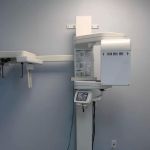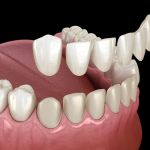- Importance of Oral Hygiene for Seniors
- Common Oral Health Issues in Seniors
- Key Oral Hygiene Tips for Seniors
- Dental Care Products for Seniors
- How to Encourage Good Oral Hygiene Habits
- Professional Dental Care for Seniors
Importance of Oral Hygiene for Seniors
Oral hygiene is crucial at every age, but it becomes even more important as we grow older. As people age, the risks for dental problems such as gum disease, tooth decay, and tooth loss increase. In fact, poor oral hygiene in seniors can lead to severe complications, including infections, difficulty eating, and even the development of other systemic diseases such as heart disease and diabetes. Maintaining good oral health can have a significant impact on a senior’s overall well-being and quality of life.
In addition to the obvious benefits of maintaining healthy teeth and gums, seniors who take care of their oral hygiene are less likely to face the discomfort and challenges of dealing with dental issues. Proper oral care also allows them to continue enjoying a balanced diet, communicate confidently, and avoid more complex dental treatments down the line. The good news is that with a few easy-to-follow habits, seniors can achieve optimal oral health and avoid common dental problems.
Common Oral Health Issues in Seniors
As seniors age, they may experience a variety of oral health issues. Recognizing these problems and addressing them early can help prevent further complications. Here are some common oral health concerns for seniors:
1. Dry Mouth (Xerostomia)
Dry mouth is a common issue for older adults, often caused by medications, certain health conditions, or natural changes in the salivary glands as we age. Saliva is essential for neutralizing acids, cleaning teeth, and preventing tooth decay. Without enough saliva, seniors are more prone to tooth decay, gum disease, and difficulty swallowing. Dry mouth can also cause discomfort and difficulty speaking, so it’s important to address it as soon as possible.
2. Gum Disease
Gum disease, or periodontal disease, is a major concern for seniors. It starts with inflammation of the gums and can progress to more severe stages if left untreated, leading to tooth loss. Seniors with poor oral hygiene, those with diabetes, and smokers are at higher risk for gum disease. Gum disease is also linked to other health issues such as heart disease and stroke.
3. Tooth Sensitivity
As people age, their tooth enamel naturally wears down, which can lead to increased tooth sensitivity. This sensitivity can be triggered by hot or cold foods and drinks, making eating and drinking uncomfortable. Regular dental checkups and using toothpaste designed for sensitive teeth can help manage this issue.
4. Tooth Decay and Cavities
Tooth decay remains a common issue for seniors, despite the natural aging of teeth. Cavities can occur due to the reduced production of saliva, as well as insufficient brushing and flossing. Tooth decay can lead to severe dental issues if left untreated, so it’s important to focus on preventive care and timely dental visits.
Key Oral Hygiene Tips for Seniors
There are several oral hygiene practices that seniors can adopt to ensure their teeth and gums stay healthy:
- Brush Teeth Twice a Day: Brushing your teeth at least twice a day is essential to remove food particles and plaque that can lead to cavities and gum disease. Use a soft-bristled toothbrush and fluoride toothpaste to clean your teeth effectively without damaging the enamel.
- Floss Daily: Flossing helps remove food particles and plaque from between the teeth and along the gumline where a toothbrush cannot reach. This helps prevent gum disease and tooth decay. For seniors with limited dexterity, there are flossing tools and holders that can make this process easier.
- Use Mouthwash: An antimicrobial mouthwash can help reduce bacteria in the mouth and freshen breath. It can also help reduce plaque buildup and prevent gum disease.
- Stay Hydrated: Drinking plenty of water throughout the day can help alleviate dry mouth and wash away food particles. If dry mouth persists, seniors should consult their dentist for possible treatments or recommendations.
- Limit Sugary Foods: Sugary foods and beverages can lead to cavities and contribute to dry mouth. Seniors should aim to limit their intake of sugary foods and choose healthier snacks like vegetables, fruits, and nuts.
Dental Care Products for Seniors
There are several dental care products that can help seniors maintain their oral hygiene effectively:
1. Toothbrushes
Seniors should use soft-bristled toothbrushes to avoid damaging sensitive gums and enamel. Electric toothbrushes can be a great option, especially for seniors with arthritis or limited dexterity, as they make brushing more effective and easier to manage.
2. Flossing Aids
Floss holders or floss picks can make it easier for seniors to floss their teeth, especially if they have difficulty with manual dexterity. These tools can help ensure that seniors don’t skip this important part of their oral hygiene routine.
3. Mouthwash for Dry Mouth
For seniors dealing with dry mouth, using mouthwash specifically designed for dry mouth can help stimulate saliva production and provide relief. These mouthwashes are available over-the-counter and are often alcohol-free to prevent further dryness.
How to Encourage Good Oral Hygiene Habits
Encouraging seniors to maintain good oral hygiene habits can sometimes be a challenge, especially if they are dealing with physical limitations or dementia. Here are some tips for encouraging seniors to adopt and stick to a proper oral hygiene routine:
- Provide Gentle Reminders: Regular reminders can help seniors stay on track with their oral hygiene routine. Set up a schedule or create a visual reminder to help them remember to brush, floss, and rinse.
- Use Oral Care Products with Easy-to-Use Designs: Choose products designed for seniors, such as toothbrushes with larger handles, ergonomic flossing tools, and easy-to-grip bottles of mouthwash.
- Incorporate Oral Hygiene into Daily Routine: Make oral hygiene part of the senior’s daily routine, just like any other essential activity such as eating or taking medication. Consistency is key to long-term success.
- Enlist the Help of a Caregiver: If a senior has difficulty managing their own oral care, involve a caregiver or family member to help with brushing, flossing, and regular dental checkups.
Professional Dental Care for Seniors
Even with the best at-home oral hygiene practices, regular visits to the dentist are essential for maintaining optimal oral health. Seniors should visit their dentist at least once a year for a professional cleaning and checkup. This allows the dentist to catch any potential issues early and provide necessary treatments, such as fluoride treatments, fillings, or gum disease care.
If seniors have special oral health needs, such as dentures or bridges, they should have these examined regularly to ensure they are in good condition and functioning properly. Dentists can also offer advice on additional treatments to address specific issues, such as dry mouth or tooth sensitivity.
In addition to regular dental visits, seniors should feel comfortable asking their dentist about any concerns they have regarding their oral health, as well as any new technologies or treatments that may benefit them as they age.
By maintaining proper oral hygiene, using the right dental care products, and seeking professional help when needed, seniors can enjoy healthier teeth and gums throughout their golden years. Remember, a healthy smile leads to better overall health and a higher quality of life.







 Fox Family Dental4.0 (787 review)
Fox Family Dental4.0 (787 review) Nashua Dentistry and Orthodontics for Children4.0 (370 review)
Nashua Dentistry and Orthodontics for Children4.0 (370 review) Gardena Dental Care4.0 (416 review)
Gardena Dental Care4.0 (416 review) HealthPartners Dental Clinic Woodbury2.0 (24 review)
HealthPartners Dental Clinic Woodbury2.0 (24 review) East Hill Dental5.0 (156 review)
East Hill Dental5.0 (156 review) Tacoma Dental Care, Dr. Thi Truong Nguyen, DMD.5.0 (29 review)
Tacoma Dental Care, Dr. Thi Truong Nguyen, DMD.5.0 (29 review) The Importance of Oral Health Education During Pregnancy for a Healthy Pregnancy
The Importance of Oral Health Education During Pregnancy for a Healthy Pregnancy Best Tips for Brushing Your Teeth Properly for Healthy Gums: Essential Techniques for Oral Health
Best Tips for Brushing Your Teeth Properly for Healthy Gums: Essential Techniques for Oral Health Why Skipping Dental Checkups Can Lead to Bigger Oral Health Problems
Why Skipping Dental Checkups Can Lead to Bigger Oral Health Problems Advantages of Porcelain Dental Restorations
Advantages of Porcelain Dental Restorations How Can Diabetes Cause Tooth and Gum Problems? Preventing and Managing Oral Health Issues
How Can Diabetes Cause Tooth and Gum Problems? Preventing and Managing Oral Health Issues Healthy Habits for Promoting Good Oral Health and Hygiene: Tips for a Healthy Smile
Healthy Habits for Promoting Good Oral Health and Hygiene: Tips for a Healthy Smile